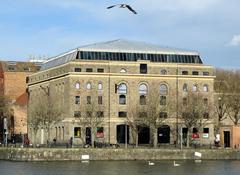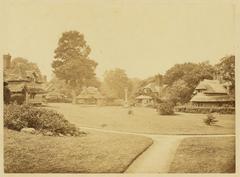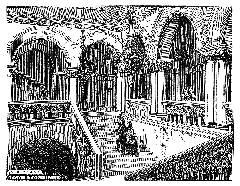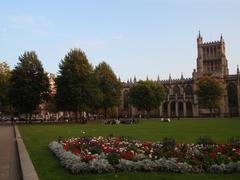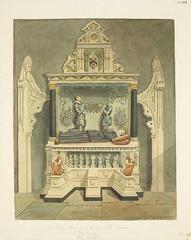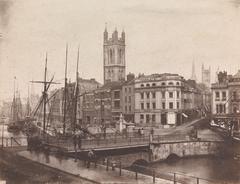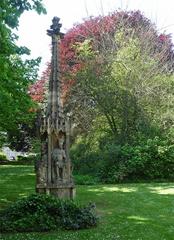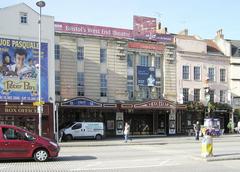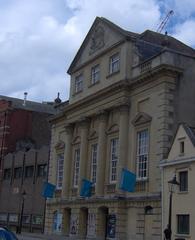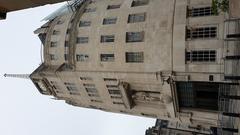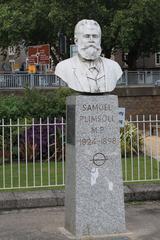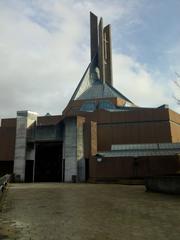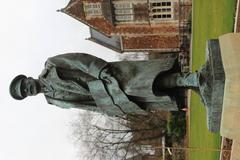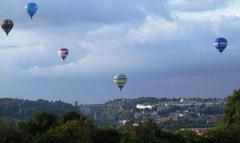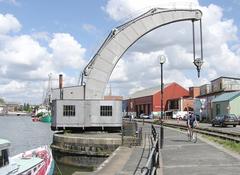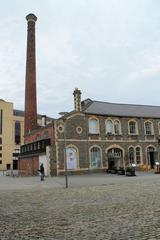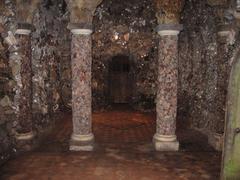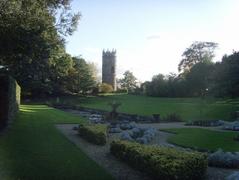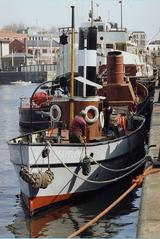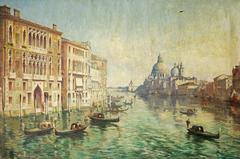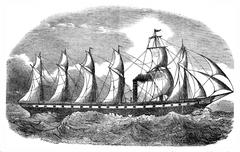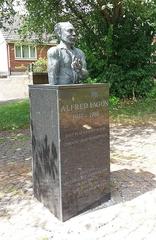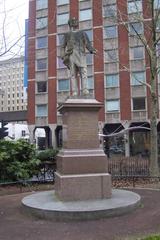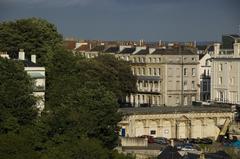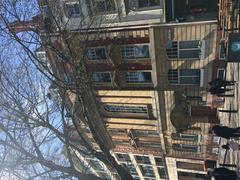Broadcasting House Bristol: Visiting Hours, Tickets, and Historical Guide
Date: 14/06/2025
Introduction
Broadcasting House Bristol is a landmark of British broadcasting and a vibrant hub of media innovation in the West of England. Nestled on Whiteladies Road in the historic Clifton district, this iconic BBC facility has shaped radio and television since 1934. It is renowned not only for its pivotal role in the BBC’s history—housing the acclaimed BBC Natural History Unit and pioneering wartime broadcasting—but also for its dynamic contributions to contemporary media, education, and community life.
This guide provides a comprehensive overview for visitors, including details on visiting hours, ticketing, accessibility, and recommendations for nearby attractions. It is designed to help you plan an enriching visit, whether you’re a history enthusiast, media fan, or exploring Bristol’s cultural sites (BBC News, BBC History of the BBC, Historic England Listing).
Contents
- Historical Overview
- Architectural Heritage
- Cultural Significance
- Visiting Information (Hours, Tickets, Accessibility)
- Visitor Experience and Highlights
- Practical Tips
- Frequently Asked Questions (FAQ)
- Nearby Attractions
- Community Engagement
- Sources
Historical Overview
Founding and Early Years
Opened in 1934, Broadcasting House Bristol marked the BBC’s expansion beyond London. Its initial facilities included a large studio for live orchestral broadcasts—a technological leap at the time. By 1940, the complex featured six purpose-built studios for diverse production needs, establishing Bristol as the BBC’s regional broadcasting powerhouse (BBC News).
Wartime Innovation
During World War II, Broadcasting House Bristol assumed critical importance. When London was threatened by air raids, the BBC established emergency studios in the disused Clifton Rocks Railway tunnels, ensuring continuous broadcasting under the most challenging conditions (BBC News).
Post-War Growth and the BBC Natural History Unit
The post-war era saw Broadcasting House Bristol flourish as a creative centre. The BBC Natural History Unit (NHU), founded in 1957, began producing world-renowned wildlife documentaries including “Life on Earth” and “Blue Planet II” (BBC Media Centre). The site remains the heart of the NHU’s globally acclaimed output.
Expansion and Regional Impact
Over the decades, the site expanded along Whiteladies Road, becoming the largest BBC Studios base outside London. Local radio (BBC Radio Bristol) and regional TV (BBC Points West) are produced here, reflecting deep community connections and regional identity.
Architectural Heritage
Victorian Foundations and Modern Expansion
Broadcasting House Bristol comprises several Grade II listed Victorian townhouses (21–33 Whiteladies Road), notable for their architectural and historical significance (Historic England Listing). The BBC’s careful integration of modern additions—such as the headquarters offices built in 1990 and the Network Production Centre opened in 1984—preserves the historic façades and key interior features, blending heritage with technological progress (BBC History of the BBC).
Wartime Adaptations
The building’s wartime role included the development of secure underground broadcasting facilities within the Clifton Rocks Railway caverns, emphasizing its resilience and national significance (Wikipedia).
Cultural Significance
Broadcasting House Bristol stands as a cradle of innovation—home to the BBC Natural History Unit, the regional “Points West” news programme, and BBC Radio Bristol. Its productions have shaped both local and national identity, and its staff have contributed to some of the BBC’s most famous series, such as “Antiques Roadshow” and “Countryfile” (BBC Media Centre).
The site is also a focal point for media education, public outreach, and community partnerships, hosting workshops, festivals, and media literacy programs (Top Broadcasting Companies In Bristol In 2025).
Visiting Information
Visiting Hours
Broadcasting House Bristol is primarily a working production facility and is not open for casual drop-in visits. Public access is offered through:
- Guided tours: Available during specific open days, festivals, or by prior arrangement. Typical hours are Tuesday to Saturday, 10:00 AM to 4:00 PM, but always check the BBC Bristol tours page for the latest schedule.
- Special events: Including Open Studios and the Bristol Festival of Nature.
Tickets and Booking
- Advance booking is essential for all tours and events, as capacity is limited.
- Book tickets online via the BBC Bristol tours page.
- Some events are free; others may have a modest fee. Concessions are available for children, students, and seniors.
Accessibility
Broadcasting House Bristol is committed to inclusivity:
- Full step-free access and accessible restrooms.
- Assistance for visitors with disabilities can be arranged—review the BBC Bristol accessibility FAQ or contact staff in advance.
Getting There
- Address: Whiteladies Road, Bristol, BS8 2LR
- Public transport: Accessible via bus routes 8 and 9, with stops outside the venue; Clifton Down railway station is a short walk away (VisitBritain Bristol).
- Parking: No on-site parking. Options include nearby NCP car parks and street parking (BBC Bristol parking info).
Security and Entry
- Bring valid photo ID.
- Only small bags (A4 size or smaller) are permitted (BBC Bristol bag policy).
- All visitors undergo bag checks and must sign in at reception.
Visitor Experience and Highlights
Guided Tours
Tours offer exclusive access to:
- TV and radio studios
- Control rooms and editing suites
- BBC Natural History Unit production areas
Interactive features include mock news bulletins, green screen experiences, and Q&A sessions with BBC staff.
Interactive Exhibits and Education
Hands-on exhibits allow visitors to try their hand at presenting or weather reporting, making the visit especially engaging for families and school groups. The experience is aligned with the BBC’s mission to inform, educate, and entertain (The Conversation: BBC history).
Photography
Photography is generally restricted inside operational areas. Please follow guide instructions and seek permission where necessary.
Practical Tips
- Reserve your tour well in advance, especially during school holidays or festivals.
- Travel light and comply with the bag policy.
- Use public transport for convenience.
- Notify staff of any accessibility needs ahead of your visit.
- Allow extra time to explore the Clifton area and nearby attractions.
- Collect a city map at the venue or main transport hubs.
- Provide feedback to help improve future visitor experiences.
Frequently Asked Questions (FAQ)
Can I bring children on the tours?
Yes, tours are family-friendly and suitable for all ages.
Are tours wheelchair accessible?
Yes, with full step-free access. Please notify staff of any requirements.
What are the visiting hours?
Generally Tuesday to Saturday, 10:00 AM – 4:00 PM, but check the BBC Bristol tours page for current details.
How do I buy tickets?
Book online in advance via the BBC Bristol tours page.
Can I take photographs?
Photography is restricted inside; follow the guide’s instructions.
Nearby Attractions
Enhance your visit with a trip to:
- Clifton Suspension Bridge
- Bristol Museum & Art Gallery
- Clifton Village’s cafes and shops
- Bristol Harbourside and the historic SS Great Britain
A city map is available at the venue and major transport hubs (Visit Bristol visitor information).
Community Engagement and Inclusivity
Broadcasting House Bristol is deeply embedded in the local community, partnering with schools, universities, and organizations to provide media workshops and support city events like the International Balloon Fiesta (Bristol City Council community engagement). As part of Bristol’s Welcoming Spaces initiative, it offers a safe and inclusive environment for all visitors (Bristol Welcoming Spaces).
Summary and Visitor Recommendations
Broadcasting House Bristol is both a monument to broadcasting heritage and a living centre of media creativity. Its historic studios, resilient wartime operations, and the world-famous Natural History Unit make it a must-visit attraction for anyone interested in British culture, history, or media. Advance booking is essential for tours, and accessibility is a priority for all visitors. Combine your visit with other Bristol landmarks for a well-rounded cultural experience.
Stay up to date by visiting the BBC Bristol website and consider downloading the Audiala app for exclusive audio tours and behind-the-scenes content.
Sources
- BBC News
- Historic England Listing
- BBC History of the BBC: Bristol Broadcasting House
- BBC Media Centre: BBC Bristol 90th Anniversary
- Visit Bristol Official Visitor Information
- The Conversation: 100 years of the BBC
- Top Broadcasting Companies In Bristol In 2025
- BBC Bristol tours
- BBC Bristol accessibility FAQ
- BBC Bristol bag policy
- BBC Bristol parking info
- VisitBritain Bristol
- Bristol City Council community engagement
- Bristol Welcoming Spaces
